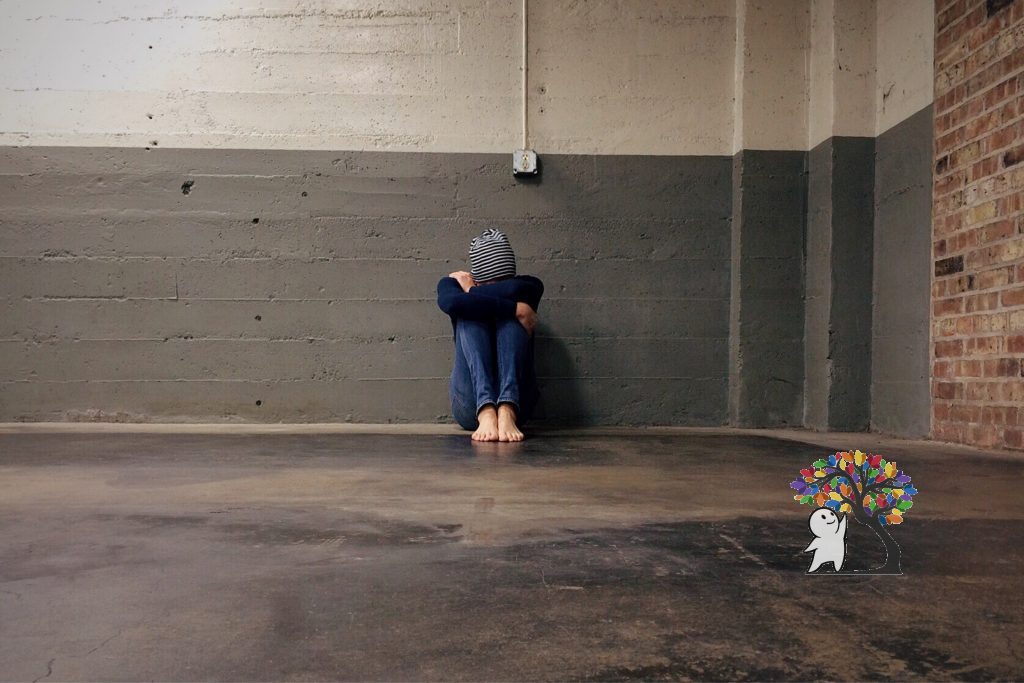5 Long Term Effects of Bullying (Psychological & Emotional Effects)

Bullying has always been a huge issue in our education system. With the progression of technology, bullies are only finding new ways to hurt others. While TV and movies may portray bullying as part of growing up, what’s left out are the negative consequences for the victim in the future. Even in popular cases where a childhood bully victim grows up to be far more successful than their aggressor, the psychological issues may still be present. In this article, we’ll be discussing five psychological and emotional consequences of bullying on a person as they grow.
Bullying is a complex topic that can take many forms. To provide context for the rest of the article, ROGERS Behavioral Health, a mental health non-profit organization, classifies bullying in the following categories:
- Verbal: Using words to hurt another person. Insults, name-calling, and threats are common.
- Social: Is more indirect and involves other people: For example, spreading rumors about someone.
- Physical: Using physical violence against another person and/or their property.
- Cyber: Harming someone through the use of technology such as social media.
(Source: ROGERS Behavioral Health 2020)
Changes in Self-Image
Bullying has effects on a person’s self-esteem. People who are bullied may find that they lack confidence in themselves. They may blame themselves for the way others treat them; thinking they deserve what’s happening. These issues are not only problematic on an interpersonal level, but can affect the relationships with others. For instance, a bullying victim may find it harder to make friends (Weinberger 2019).

Change in Habits
Bullying has been noted to impact a person’s habits. A victim may find that they’re eating less or more as a coping mechanism. Similarly, a positive correlation has been shown among bullying victims with lower academic performance. Part of this can be attributed to that victims are more likely to be absent from school and/or their interest is negatively affected. The person may be changing their habits as a way to avoid situations, or on a more serious note, it may be a warning sign of a mental health issue (Lee 2018).

Development of Psychological Issues
Bullying is often highly traumatic and repeated instances may have devastating effects on the mental health of an individual. Both the bullying victim and the bullies themselves are more susceptible to developing mental health issues later in life. Anxiety, depression, and addiction have been correlated with long-term bullying. Additionally, cases of PTSD to even schizophrenia have been reported. The negative consequences may be more evident the younger the individual is during the bullying episodes; bullying is highly damaging to the mental and emotional development of a child (Alexander, Krans, 2016).

Effects on Physical Health
Bullying has been known to change the physical structure of the victim’s brain. This may have an impact on the decision-making and thinking skills of the affected person in the future. On a more physical level, bullying can cause sleeping problems. Sleep is highly important and when compromised, can have drastic effects on both mental and physical health. Similarly, bullying may cause health problems in a person that cannot otherwise be explained. For instance, an increase in headaches, stomach pain, joint pain, among others may occur. Eating habits may be compromised causing someone to either undereat or overeat, both of which may lead to health issues later on (Lee 2018).

Difficulty With Relationships
Bullying can disrupt relationships in a variety of ways. People spreading rumors and alienating others can make it difficult for a person to make friends. On another level, the feelings of insecurity and lack of trust in others have similar consequences. In many scenarios, a bully victim may also be a bully as well. This not only harms others, but also the bullies themselves (Lee 2018).

Bullying is still a serious issue. While in the past, people were told to “get over it,” studies are showing that there are serious complications that show up later in life. These issues not only affect a person’s relationships and development, but can lead to mental health issues later in life. It’s important to recognize signs of bullying and to reach out for help if you, or someone you know is dealing with an issue.
References:
- Alexander, R., & Krans, B. (2016, August 16). Anxiety, Depression, and Suicide: The Lasting Effects of Bullying. Retrieved from https://www.healthline.com/health-news/bullying-affects-victims-and-bullies-into-adulthood-022013#2
- Board, S. B. E. (2019, November 25). Effects of Bullying on Mental Health. Retrieved from https://www.stopbullying.gov/blog/2019/10/25/effects-bullying-mental-health
- Lee, R. (2018, October 8). Bullying and Mental Health Consequences. Retrieved from https://psychcentral.com/lib/bullying-and-mental-health-consequences/
-
Rogers Behavioral Health. (2020, February 13). How does bullying impact mental health? Retrieved from https://rogersbh.org/about-us/newsroom/blog/how-does-bullying-impact-mental-health
- Townley, C. (2019, January 6). Bullying alters brain structure, raises risk of mental health problems. Retrieved from https://www.medicalnewstoday.com/articles/324089
- Weinberger, J., DuBois-Maahs, J., Houlis, A. M., & Stanger, M. (2019, October 8). Bullying Awareness Month: Bullying’s Impact on Mental Health. Retrieved from https://www.talkspace.com/blog/bullying-mental-health-effects/


Responses